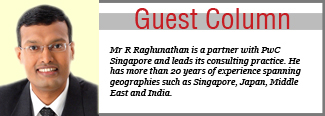
PwC research says hiring skilled people has become harder and middle managers with the potential to rise to the top are particularly short in supply

Year 2011 was an action-packed-year for HR professionals in Asia Pacific life sciences industry. It tested their skills to keep pace with the high level of investment and business expansion in the region. Key HR trends revolved around new strategies for hiring and building a talent pipeline, managing the rising cost of attracting and retaining talent and change management activities to support unprecedented M&A and outsourcing initiatives.
PwC research revealed several people challenges faced by CEOs in the industry. Hiring people with the necessary skills has become harder and middle managers with the potential to rise to the top are particularly short in supply. In the past 12 months, talent constraints have restricted innovation in 33 percent of life sciences companies, globally. In addition, nearly half have seen their labour costs climb higher than expected.
The success of biomedical development and availability of skilled resources and research institutes in Singapore has made the country a popular talent hunting ground. This has fuelled an increase in salaries even at the graduate level. On the other hand, Japanese companies such as Daiichi Sankyo, Astellas and Eisai, are directing more resources to India to tap on its vast pool of skilled talent. However, even in India a shortage of high-tech professionals such as molecular biologists has limited the growth of R&D and resulted in desperate measures like mid-year salary increments to retain critical talent. Similarly, China is increasingly becoming an outsourcing location for R&D activities but the lack of a skilled workforce poses a real challenge to this status.
A number of organizations explored new strategies to deal with the talent deficit, such as partnering with other organizations to build a talent pipeline and tapping on the skilled retiree pool. For example, Johnson & Johnson has joined forces with China's Tianjin Medical University Cancer Institute and Hospital for R&D. At Abbott Laboratories, employees near retirement are being considered as mentors or trainers in special projects instead of stretching the currently small managerial pool. One in four CEOs plan to move experienced employees from newer markets to their company's home markets to circumvent the skills shortage. An increasing number of junior Asian expatriates are being hired by organizations and brought back into Asia. Forty-nine percent of CEOs globally are also turning to technology. Eli Lilly has, for example, invested heavily in computational analysis and cloud computing to improve the productivity of its research team.
With big pharma restructuring their organizations through M&A and outsourcing, the need for talent integration, change management and employee engagement activities have taken centrestage. There has been an increased demand for senior HR professionals to help with internal restructuring, attrition management and softer issues like management of cultural and emotional impact on people.
While 2012 continues to be challenging from the perspective of talent availability, organizations need to be prepared for the next battle of spiralling talent costs (higher salaries, attrition), a natural fallout of the talent crunch. An immediate focus on retention and nurturing of existing talent could help break out of this talent spiral. This may entail upgrading hiring and on-boarding processes, putting more emphasis on training and development (apprenticeships, internships, skills upgrade), and looking beyond financial incentives. Organizations will need to rethink their talent management strategies and redefine their employee value proposition to ensure sustainability in the long term.
Sources of the story include PwC 15th Annual Global CEO Survey, 2012 (Sector Summary: Pharmaceutical and Life Sciences Industry); PwC Saratoga Asia Pacific Human Capital Effectiveness Programme, 2011 Gary M Stern, 'Not letting go: Companies hang on to their baby boomers, CNNMoney (18 October 2011),] PwC Report 2012 : Breaking out of the talent spiral - Key Human Capital trends in Asia Pacific




